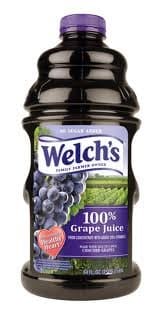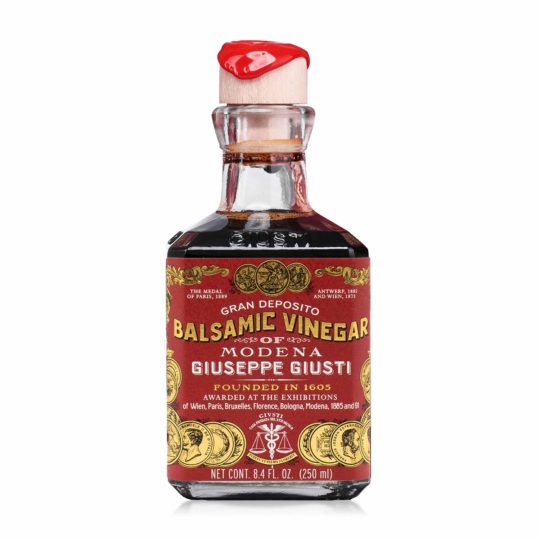If you list Vermouth as one of the very versatile ingredients in use, you’d be right on the money. Vermouth is a wine, basically, and one of the typical ingredients in a gin martini. In many cases, that is the only reason anyone would seem to care at all about it. Still, Vermouth happens to be much more than just a component of a martini.
This may come as a surprise to you (to most people, in fact), but Vermouth is used in a range of culinary operations. With the delicate and gently herbaceous flavor that it imparts into recipes, Vermouth can be described as an exquisite ingredient, reserved for delightful meals and an altogether satisfying experience. What happens, however, if you don’t have Vermouth at hand while you’re cooking?
Other popular drinks can serve as excellent replacements for Vermouth in your recipes. However, it is important to understand how to add these substitutes to your recipes and replicate or improve the flavors Vermouth would normally bring into your meals.
What is vermouth?
Vermouth is a fortified and aromatized wine that has been tinted with various botanicals (roots, barks, flowers, seeds, herbs, and spices). It is prepared using a base of neutral grape wine or unfermented wine-must. Each manufacturer adds additional alcohol and a specific blend of dry ingredients, consisting of fragrant herbs, roots, and barks, to the base wine, a mixture of the base wine and spirit, or spirit only. These ingredients may be distilled again before adding to the unfermented wine-must or wine. The Vermouth is sweetened with cane sugar or caramelized sugar after the wine is aromatized and fortified, depending on the style.
Vermouth is used in drinks to reduce the alcohol concentration of cocktails with powerful spirits as their base. It also produces a nice herbal flavor and scent and amplifies the flavors in the base liquor.
Vermouth can be used in recipes that require white wine and is a good substitute for wine in sauces. Vermouth is frequently flavored with different ingredients. If enough Vermouth is used in cooking, these flavors will come through in the finished product.
Vermouth uses in recipes
You’re probably one of the people that think about classic cocktail drinks like the Manhattan or the martini when you hear the word “vermouth,” and you’re correct. Vermouth is, however, more than just one of the ingredients you mix up in your gin. It also serves culinary functions, and it imparts a delicate, herbaceous flavor into recipes and blends well into some sauces for the best taste.
Vermouth’s flavor is quite distinctive. As such, depending on the type of Vermouth and spices added to it, it will offer a pleasant and sweet herbal flavor to your meal. Some of the recipes in which Vermouth can be used are as follows:
- Vermouth-marinated salmon
- Pasta with vermouth cream sauce
- Vermouth jus
- Seared scallops with mustard vermouth sauce
- Linguine with clam sauce
- Slow-cooked Bolognese sauce
- Tarragon salmon
- Mustard cream sauce
- Bolognese Ragu with spaghetti
- Negroni cranberry sauce
- Wine-cheese sauce
- Alfredo sauce
- Vermouth sauteed mushrooms
- Porcini-vermouth pan sauce
- Vermouth mushroom sauce
Substitutes for vermouth in cooking
If you ever happen to run out of Vermouth in your store and desperately need some extra flavor in your cooking, some substitutes can work well in its place. Some of these substitutes may not achieve the same flavor in meals as Vermouth, but they will undoubtedly improve. Interestingly, some of these substitutes can also replace Vermouth in drinks and cooking.
Consider trying out these options in your recipes:
White wine

White wine is made from grapes that have not been exposed to the skins during fermentation. It might be straw-yellow, yellow-green, or yellow-gold. It’s made from the alcoholic fermentation of the non-colored pulps in grapes, which can have a skin color.
One of the better alternatives to using Vermouth is white wine. There are many sorts of white wine, each with its distinct flavor. They can have citrus, fruit, or nutty flavor, and they will impart those flavors to the recipes in which they are used.
These wines are perfect for meat and fish meals since they help balance the fat and tenderize the meat. Sauces, marinades, stews, risotto, pasta, mushrooms, and shellfish all benefit from them. To connect all the flavors and increase the dish’s flavor, add the white wine at the start of the cooking process.
Dry Sherry

Dry Sherry is a Spanish fortified wine made from Palomino grapes, a unique grape variety utilized in the manufacturing of sherry. Sherry comes in light and heavy varieties, each flavor, color, alcohol, and sugar content. Sherry has a superior flavor and has less salt, so it is ideal to use it in cooking procedures.
The flavor of dry sherry is nutty and slightly sweet and can be used in sauces, soups, meats, fish, risotto, and seafood as an alternative to Vermouth. It is also great for baking desserts like pies and cakes and, in general, cooking.
A low-quality cooking sherry with additional preservatives and salt is also available, which is more appropriate for savory recipes and not sweet ones.
Grape juice

Grape juice is produced by squeezing grapes and mixing them into a liquid. Must is a term used in the wine industry to describe grape juice that comprises 7–23% pulp, skins, stems, and seeds. Grape juice’s sugar constituents allow it to be used as a sweetener, as well as fermented and turned into wine, brandy, or vinegar.
Vermouth can be replaced with grape juice. The color and flavor of grape juice are determined by the grapes used in its manufacturing, and it can be white or purple and has a sweet or somewhat sour flavor.
This juice will give your food both flavor and color. Begin with a small amount and gradually increase until you reach your desired taste. Add extra salt or lemon juice if it’s too sweet for a light and fresh flavor. Grape juice can be used in both sweet and savory dishes.
Balsamic vinegar

Balsamic vinegar is a dark, rich, and highly flavored vinegar originating from Italy. It is prepared entirely or partially from grape must, grape juice with exclusive skins, seeds, and stems freshly crushed.
Balsamic vinegar’s sweet-acidic flavor and distinct umami flavor make it perfect for various recipes. It is a product that can be considered a “must-have” component in every kitchen because of its rich brown hue and thick structure.
It is created from grape must, caramel, wine vinegar, and flavoring (in some cases, flavoring is absent). In high-quality balsamic vinegar, however, only grape must be used. It serves as a great topping on aged cheese, strawberries, and pears. It is an excellent substitute for Vermouth in pasta, risottos, sauces, and marinades.
Frequently asked questions (FAQs)
What is a non-alcoholic substitute for vermouth?
Version is a non-alcoholic vermouth substitute made with a blend of spices such as cloves, cinnamon, ginger, and citrus, to mention a few. The drink is naturally sweet because of the combination of ingredients and natural sugars that are generally digested during fermentation.
Is Vermouth a sherry?
Both Vermouth and Sherry are fortified wines (that is, they have been fortified with distilled spirits). Still, the main difference is that Vermouth is flavored or “aromatized” with aromatic herbs and spices, giving it a medicinal aspect. Vermouth is available in sweetened and unsweetened varieties.
What herbs are in vermouth?
Cloves, cinnamon, quinine, citrus peel, cardamom, marjoram, chamomile, coriander, juniper, hyssop, ginger, and labdanum are all common herbs contained in vermouths.
https://youtu.be/yd30OG-bwXg
Conclusion
It might be news to you that Vermouth makes an excellent addition to some exquisite recipes, but this is very true. Its delicate herbal flavors make meals much more enjoyable, and it serves to accentuate other tasty flavors.
However, if you do not have Vermouth, some substitutes can stand in its place, both as a drink and an ingredient in your cooking. Your best bet is to experiment with our suggested options and establish the one that brings out the flavors you crave in your cooking.